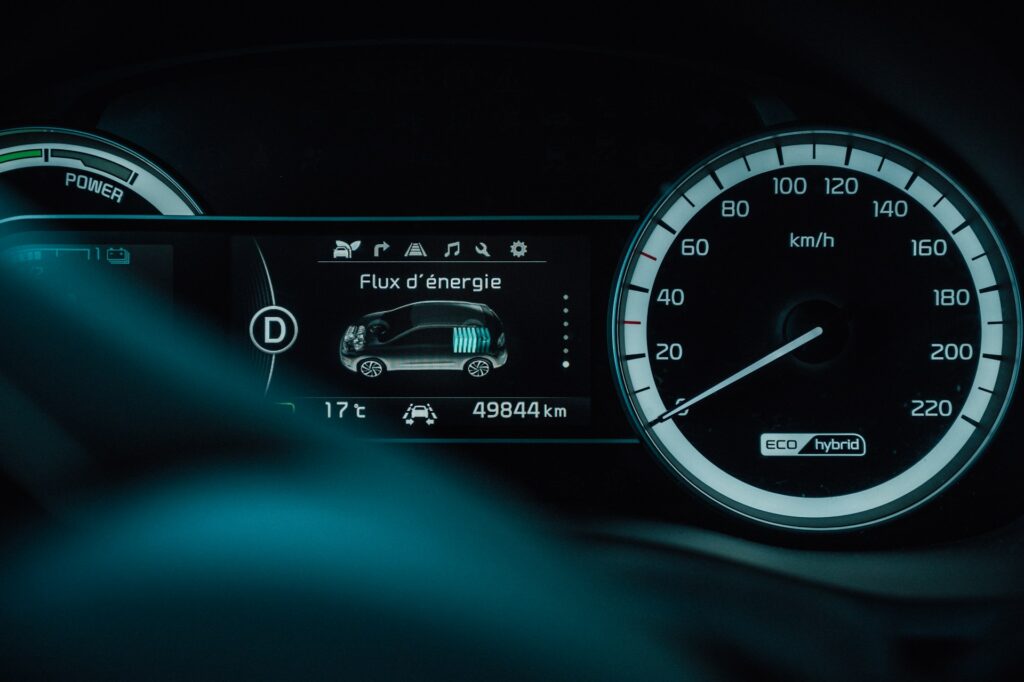
Hybrid vehicles are revolutionizing the way we drive by seamlessly blending internal combustion engines with electric propulsion systems. This dual approach delivers increased fuel efficiency and dramatically reduces emissions, making hybrids a compelling choice for eco-conscious drivers. As the global focus shifts to sustainability, understanding the innovations behind these vehicles is paramount. Learn more about how leading manufacturers are advancing hybrid technology and paving the way for a greener future.
The adoption of hybrid cars marks a critical shift in the automotive landscape, signaling industry-wide momentum toward cleaner transportation. Not only are hybrids reducing our carbon footprint, but they are also becoming more accessible and practical, making them an essential consideration for today’s drivers.
Understanding Hybrid Technology
At the heart of every hybrid vehicle is the intelligent fusion of a traditional gasoline engine with one or more electric motors. This configuration enables hybrids to utilize the most efficient power source at any given moment, thereby optimizing both fuel economy and performance. The two most prominent hybrid designs are:
- Parallel Hybrids: These systems enable the engine and electric motor to power the vehicle independently or in tandem. This versatility enables dynamic adjustments according to speed and driving conditions.
- Series Hybrids: In this configuration, the gasoline engine operates solely as a generator to produce electricity, while the electric motor is responsible for driving the wheels. This promotes smoother and quieter rides, especially at lower speeds.
Through this adaptive technology, hybrid cars can switch efficiently between power sources, making them especially effective for both city and highway driving.
Environmental and Economic Benefits
One of the primary benefits of hybrid vehicles is their ability to reduce emissions. By leveraging electric propulsion during city driving and low-speed travel, hybrids generate significantly fewer greenhouse gases than conventional gasoline-powered vehicles. This improvement is particularly crucial in urban areas, where transportation emissions have a direct impact on air quality and public health. According to the U.S. Environmental Protection Agency, hybrid cars can cut tailpipe greenhouse gas emissions by up to 35% compared to standard models. They also offer impressive fuel efficiency, helping drivers save money at the pump over time. As more automakers invest in hybrid technology, consumers can expect even more eco-friendly options in the years ahead.
Hybrids also offer meaningful economic advantages. Enhanced fuel economy reduces the frequency and cost of refueling, allowing drivers to save money over the vehicle’s lifespan. Governments frequently encourage hybrid adoption with incentives like tax credits, rebates, and preferential access to certain driving zones, further improving the cost equation for buyers.
Advancements in Hybrid Technology
Continuous innovation is vital to the appeal and performance of hybrid vehicles. Regenerative braking, a key development, has become standard in many new models. This system captures kinetic energy lost during braking and converts it into electricity to replenish the battery—an elegant solution that boosts efficiency and increases electric-only range. Moreover, battery technology is rapidly advancing. Modern lithium-ion and emerging lithium-sulfur batteries promise higher energy densities, longer lifespans, and faster charging times. According to Car and Driver, these technological advancements play a significant role in alleviating concerns over battery replacement costs and driving range, making hybrids more attractive for both longer journeys and daily commutes. Major automakers are also investing in intelligent control systems that further refine the balance between electric and gasoline power.
Market Trends and Consumer Adoption
Global hybrid sales are climbing at an unprecedented pace. In the United States, sales surged by over 30% in the past year—outpacing even some all-electric vehicle segments. This surge reflects growing consumer confidence in hybrid technology as a viable, low-risk path toward cleaner transportation. Surveys indicate that many buyers view hybrids as a stepping stone on the path to transitioning fully to electric vehicles, making them integral to the automotive industry’s shift.
Manufacturers are responding by expanding their offerings. Honda, Toyota, and other leading brands project significant growth in hybrid sales through 2030, targeting diverse market segments and offering a range of vehicles, from family-friendly SUVs to efficient urban commuters.
The Road Ahead
The future of hybrid cars looks bright as innovation continues to drive down costs and improve performance. Expanding battery options, refined control technologies, and growing environmental awareness indicate that hybrids will continue to play a pivotal role in the automotive market. As consumers increasingly balance considerations of sustainability, performance, and practicality, hybrid cars stand out as a versatile and responsible choice. Hybrid vehicles are more than just a stopgap; they are a central part of the evolution toward a cleaner, more efficient transportation future, offering tangible benefits to both drivers and the environment.
Driving Toward a Smarter Future
Hybrid vehicles have emerged as a strategic bridge between traditional combustion engines and fully electric transportation. Their ability to deliver fuel savings, reduce environmental impact, and adapt to diverse driving conditions makes them a smart option for modern motorists. As technological improvements continue to address lingering challenges, such as cost and infrastructure, the appeal of hybrids is expected to grow.
For consumers considering a shift to more sustainable mobility, hybrids offer a practical and forward-thinking solution. They allow drivers to participate in the green movement without compromising convenience or performance. With major automakers doubling down on hybrid development and global policy pushing for lower emissions, the hybrid era is just getting started.





